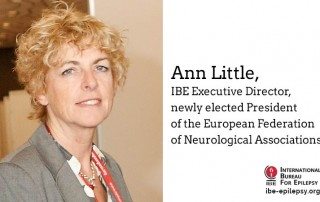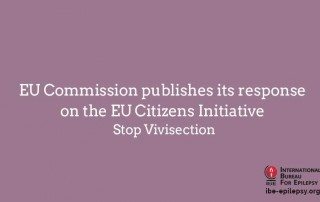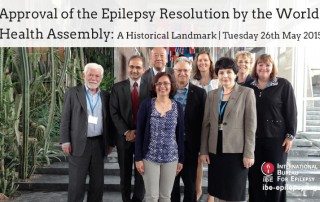Ann Little, IBE Executive Director, newly elected President of the European Federation of Neurological Associations
IBE is pleased to announce that Ann Little, IBE Executive Director, has been elected as President of the European Federation of Neurological Associations for the two-year term 2015-2017. The election took place at the General Assembly of EFNA, held during the 1st Congress of the European Academy of Neurology (EAN) in Berlin. EFNA is a network of neurological patient advocacy groups, focused on the field of neurology whose mission is to influence policy makers and legislators, particularly in European Member countries but also across the continent of Europe. Ann Little, IBE Executive Director, newly elected President of EFNA In line with IBE’s own mission, EFNA aims to encourage the implementation of the necessary resource priorities in order to reduce stigma and improve the quality of lives of people with a neurological disorder. Whilst remaining independent, EFNA also co-operates with the EAN and other agencies working in the field. Members of EFNA include European Multiple Sclerosis Platform, European Headache Alliance, Motor Neurone Disease Association, and Stroke Alliance Europe, as well as associations representing rare neurological disorders including International Huntington Association, Dystonia Europe, euro-ATAXIA and European Alliance for Restless Legs Syndrome.



